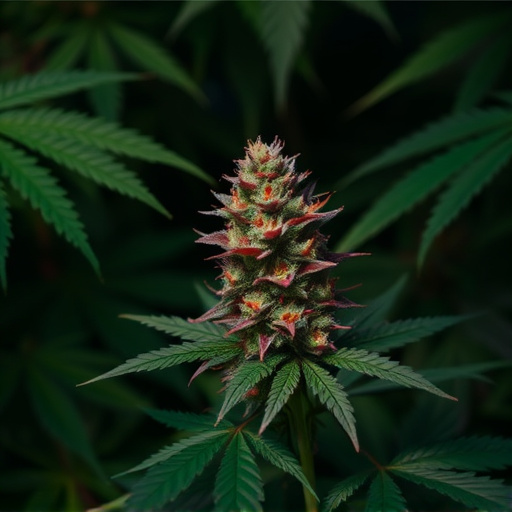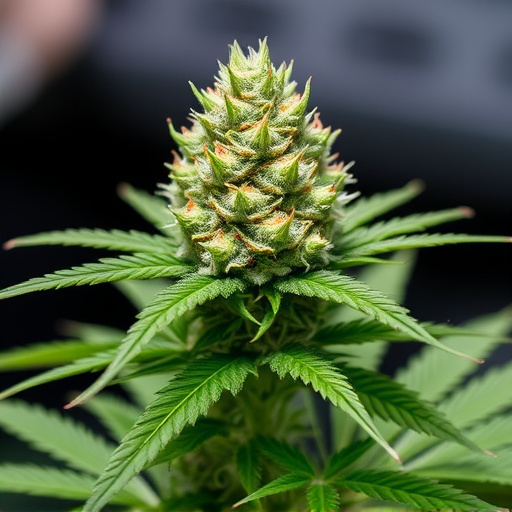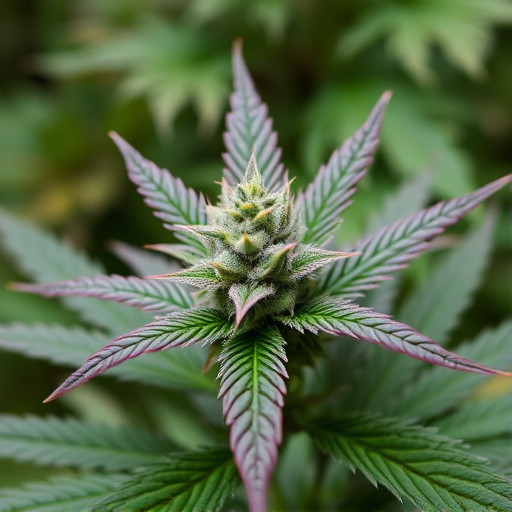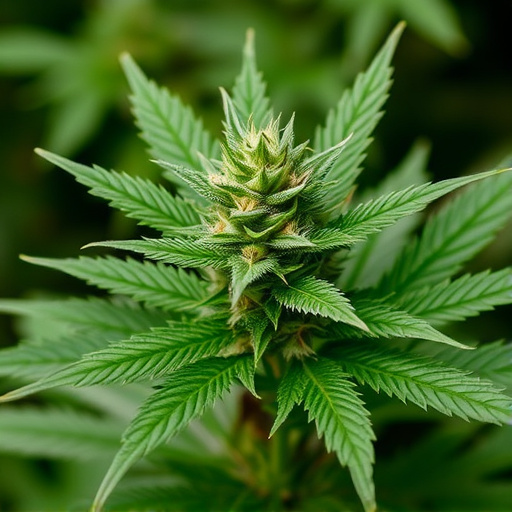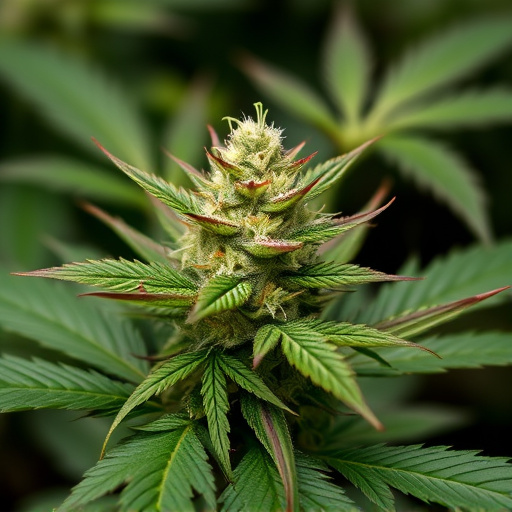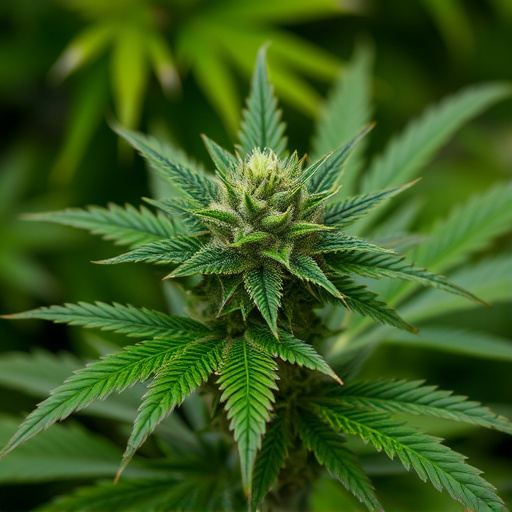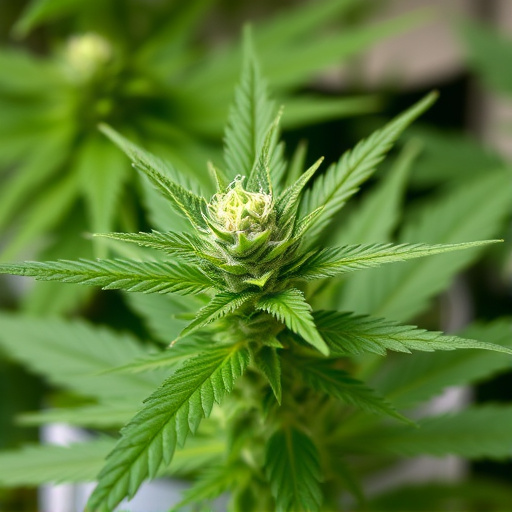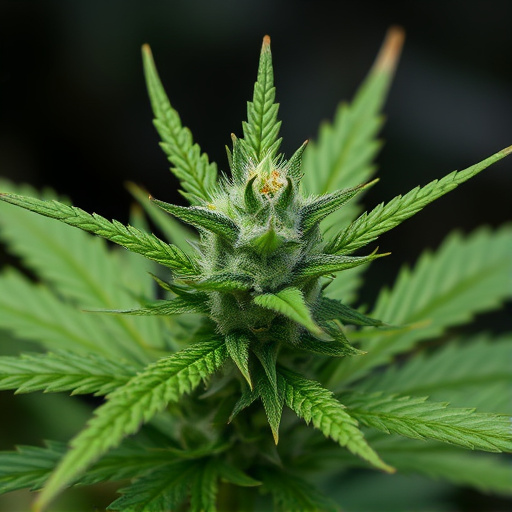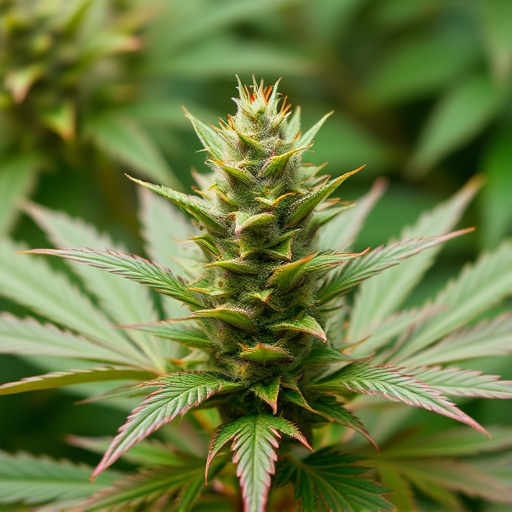Terpenes in cannabis, such as linalool and myrcene, interact with the body's endocannabinoid system to influence mood, memory, appetite, and pain perception. Studies show these compounds offer potential benefits like relaxation, improved sleep, and enhanced focus for individuals with ADHD. When selecting cannabis strains for ADHD management, choose varieties rich in specific terpenes known for their calming or focusing effects; consult healthcare professionals to tailor terpene combinations according to unique needs.
Discover the power of terpenes, the aromatic compounds giving cannabis its distinct character. This article explores why they matter, especially in managing Attention Deficit Hyperactivity Disorder (ADHD). From understanding terpene profiles to their potential impact on focus and relaxation, we’ll delve into how specific cannabis strains high in certain terpenes can offer targeted relief for ADHD symptoms. Learn which strains might be your best allies in navigating this condition.
- Understanding Terpenes: The Essential Compounds in Cannabis
- Terpenes and ADHD: Potential Benefits and Strain Considerations
- Choosing the Right Cannabis Strains for ADHD Management
Understanding Terpenes: The Essential Compounds in Cannabis
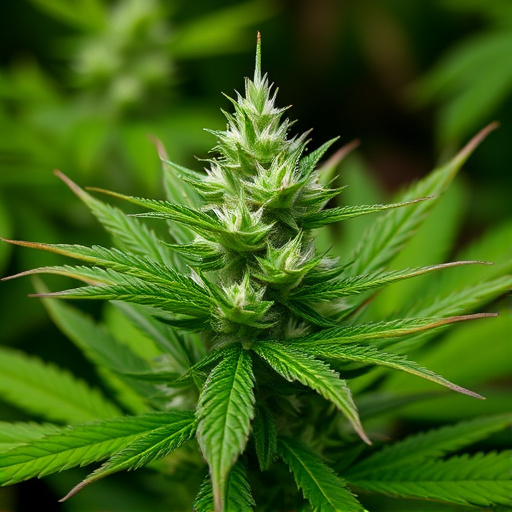
Terpenes, often referred to as the “aromatic molecules” of cannabis, play a pivotal role in understanding why different cannabis strains offer unique experiences and potential therapeutic benefits. These compounds are responsible for not just the distinctive scents and flavors we associate with various cannabis strains but also for their diverse effects on the mind and body. When consumed, terpenes interact with our bodies’ endocannabinoid system (ECS), which regulates mood, memory, appetite, and pain perception, among other functions.
In the context of cannabis strains for ADHD, certain terpenes like linalool and myrcene are gaining attention for their potential calming and focus-enhancing properties. Linalool, found in lavender, is known to promote relaxation and improve sleep, which can be beneficial for individuals with ADHD who struggle with hyperactivity and mood regulation. Myrcene, often associated with fruity and earthy notes, has been linked to pain relief and anti-inflammatory effects, potentially helping to mitigate symptoms that sometimes accompany ADHD. Understanding these terpene-ECS interactions offers a glimpse into how cannabis strains can be tailored to address specific needs, including those of individuals seeking alternative treatments for ADHD.
Terpenes and ADHD: Potential Benefits and Strain Considerations
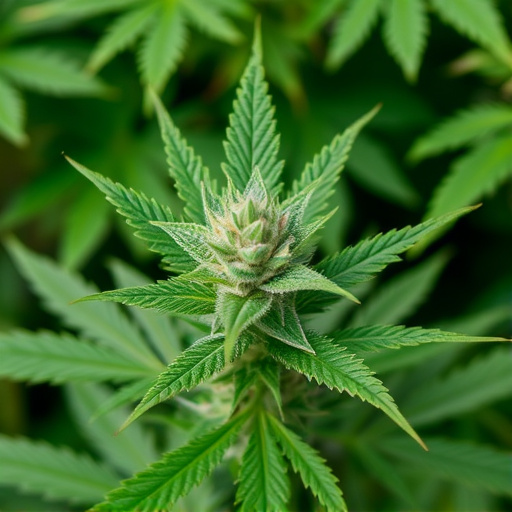
Terpenes, the aromatic compounds found in cannabis, have gained significant attention for their potential therapeutic effects beyond just their contribution to flavor and scent. When it comes to Attention Deficit Hyperactivity Disorder (ADHD), certain terpenes like linalool and myrcene are being explored for their possible benefits. Studies suggest that these terpenes may help reduce symptoms of ADHD by promoting relaxation, improving sleep quality, and enhancing focus.
When considering cannabis strains for ADHD, it’s important to look for varieties rich in these specific terpenes. For instance, strains high in linalool are known for their calming effects, making them potentially useful during the evening to ease symptoms that may interfere with sleep. Myrcene-rich strains, on the other hand, have been linked to pain relief and anti-inflammatory properties, which could be beneficial for managing ADHD-related physical discomfort or anxiety. However, individual responses can vary, so consulting healthcare professionals is crucial to find the best cannabis strain and terpene combination for each person’s unique needs.
Choosing the Right Cannabis Strains for ADHD Management
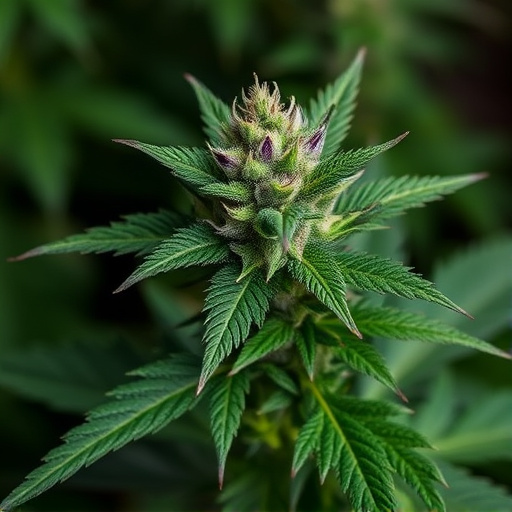
For individuals seeking natural methods to manage Attention Deficit Hyperactivity Disorder (ADHD), cannabis has emerged as a potential ally, offering a unique approach through specific strains. The key lies in understanding terpenes, aromatic compounds responsible for the distinct scents and flavors of cannabis varieties. Terpenes also interact with the endocannabinoid system, which plays a role in regulating focus, mood, and memory—all factors closely tied to ADHD symptoms.
When considering cannabis strains for ADHD management, it’s advisable to opt for those rich in terpenes known for their calming, focusing, or uplifting effects. For instance, Myrcene, often characterized as earthy and fruity, has been linked to reduced anxiety and improved sleep, beneficial for managing hyperactivity. Limonene, with its citrusy aroma, may enhance focus and mood. Linalool, found in many lavender-scented strains, is renowned for its calming properties, potentially aiding in concentration and relaxation. Choosing the right strain, therefore, involves selecting those with balanced terpene profiles tailored to individual needs.
Terpenes play a pivotal role in the aromatic profile and potential therapeutic effects of cannabis flowers, particularly when considering their application in managing conditions like ADHD. By understanding the unique properties of different terpenes and their interaction with cannabinoids, individuals can make informed choices when selecting appropriate cannabis strains for ADHD relief. Research suggests that specific terpenes may offer beneficial effects on focus, relaxation, and mood, making certain cannabis strains appealing options for those seeking natural ways to manage symptoms. However, further exploration is needed to fully unlock the potential of terpenes in cannabis as a treatment for ADHD and other conditions, highlighting the importance of ongoing research and patient-centric studies.
